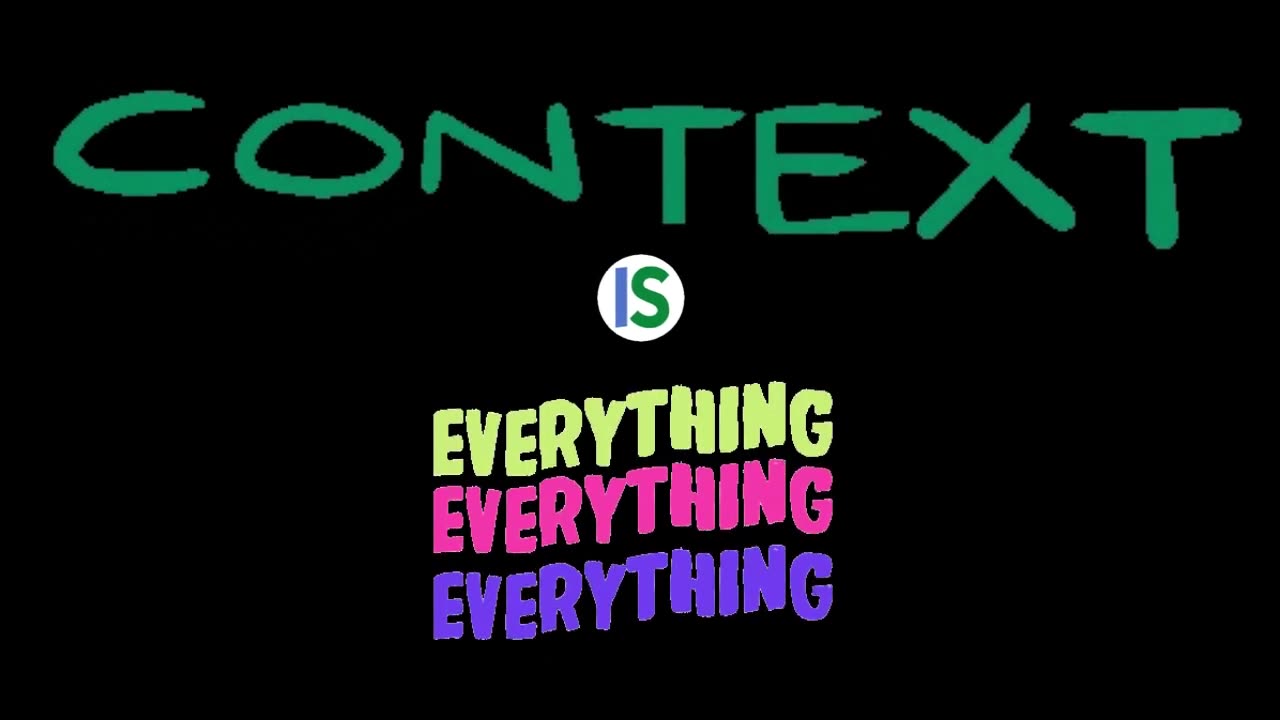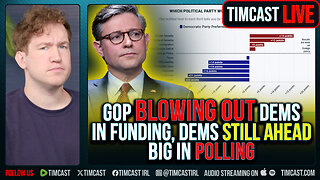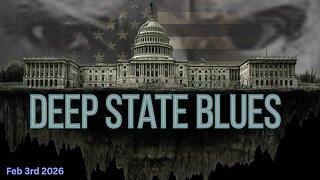Premium Only Content

Context is Everything.
The Dangers of Presenting Arguments Without Context.
In the world of debate and persuasion, there is a common tactic used to manipulate public perception—presenting an argument without its full context. By stripping a statement or position of its background, it can be made to appear radically different, even opposite, from its true intent. This is a powerful method of misrepresentation that can be used to discredit individuals, obscure the truth, and ultimately control the narrative.
At the heart of this issue is the fact that context defines meaning. Consider the example of someone advocating for the release of a film that contains child abuse. On the surface, such a request would immediately cast the person as a degenerate or even a criminal. However, if it were revealed that this film allegedly features a high-ranking political figure—perhaps the President of the United States—then the person's motives change entirely. Instead of being seen as a pervert, they become a whistleblower exposing corruption at the highest levels. The missing context radically alters the interpretation of their actions, transforming condemnation into justification.
This tactic of omitting context is commonly seen in politics, media, and social discourse. Politicians and public figures often have their words selectively quoted to fit a desired narrative. A statement made in jest or as part of a nuanced discussion can be clipped and repurposed to make the speaker appear insensitive, radical, or even dangerous. Social media amplifies this phenomenon, where soundbites and headlines are consumed without deeper investigation. The result is a manipulated audience, reacting to a distorted version of reality rather than an objective truth.
A classic historical example is the way propaganda operates. By isolating statements from their broader discussion, propagandists can turn heroes into villains and vice versa. In war, one side may frame an enemy’s defensive actions as aggression simply by removing the preceding attacks from the narrative. The audience, unaware of the full chain of events, is left with an incomplete and misleading picture.
This is why critical thinking and skepticism are essential. Whenever an argument is presented, particularly one that vilifies an individual or an idea, the first question should always be: What is the context? Without understanding the full story, any judgment is premature and potentially unjust. The consequences of context-stripping can be dire, leading to wrongful accusations, ruined reputations, and even legal injustices.
In conclusion, arguments without context are not just misleading—they are a form of deception. Whether intentional or not, failing to present the full picture results in false narratives that shape public opinion in ways that do not reflect reality. To truly understand an issue, one must demand the missing context, challenge selective presentation, and recognize that context is everything.
-
 16:30
16:30
Stephen Gardner
4 hours agoDemocrats get NIGHTMARE NEWS as Trump EXPOSES Their Secrets!
4.16K15 -
 LIVE
LIVE
Drew Hernandez
13 hours agoTYLER ROBINSON HEARING: DEFENSE MOVES TO DISQUALIFY PROSECUTION
474 watching -
![[Ep 838] SAVE Act SAVES America – Nuke Filibuster! | Dems Rage Baiting BS | Zohran Policies Kill 16](https://1a-1791.com/video/fwe2/e4/s8/1/Q/P/q/W/QPqWz.0kob-small-Ep-838-SAVE-Act-SAVES-Ameri.jpg) LIVE
LIVE
The Nunn Report - w/ Dan Nunn
1 hour ago[Ep 838] SAVE Act SAVES America – Nuke Filibuster! | Dems Rage Baiting BS | Zohran Policies Kill 16
201 watching -
 7:00
7:00
Rethinking the Dollar
4 hours agoThe Silver Squeeze Just Got Real. Here’s What’s Coming!
247 -
 1:03:50
1:03:50
DeVory Darkins
3 hours agoDemocrats dealt MASSIVE BLOW by CNN new stunning poll on Voter ID
135K82 -
 1:01:45
1:01:45
Timcast
4 hours agoGOP BLOWING OUT Dems In Funding, Dems STILL Ahead Big In Polling
204K84 -
 2:59:27
2:59:27
Wendy Bell Radio
9 hours agoThe Deep State Blues
79.9K103 -
 1:06:59
1:06:59
BonginoReport
5 hours agoJimmy Kimmel Brings Kids to Protest - Scrolling w/ Hayley Caronia (Ep.227)
170K110 -
 1:52:11
1:52:11
Steven Crowder
7 hours agoIf Texas Turns Blue - What Happens to America: Ft. In Studio Guest TX AG Ken Paxton
430K254 -
 1:54:43
1:54:43
The Dan Bongino Show
7 hours agoDon't Get Played By Their Latest Gaslighting Campaign (Ep. 2444) - 02/03/2026
1.06M1.72K